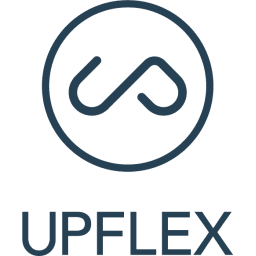How Will We Manage Hybrid Workspace? This Flex Office Marketplace Has A Plan

There are many reasons to love the idea of moving to a hybrid workplace. When employees spend some days in an office and others working remotely, finance departments can see serious cost savings, human resources departments can see boosts to talent retention and acquisition, and employees can have the flexibility to determine their own schedules.
But a hybrid model presents a daunting logistical challenge: How do you manage thousands of employees across dozens of different cities. It also raises a more existential question: How can employees feel like they're going to work "together" when they are spread across company hubs, spoke offices, flexible workspaces and their own living rooms?
“The more workers a company employs, the less inclined they are to want to rely on outside real estate solutions and services as a replacement for their pre-pandemic offices,” said Christophe Garnier, co-founder and CEO of Upflex, a marketplace for flexible office spaces. “They had pinned so much of their company identity to these spaces.”
Major enterprises now use Upflex to let their employees choose and reserve flexible workspace across 70 different countries, but Garnier said that these companies are increasingly looking for a seamless, branded workplace experience that they can own. He believes Upflex has a solution.
The company has begun offering two new product features, White Label and Unify.
White Label lets companies customize the appearance of the Upflex platform with their own colors and branding, allowing users to book any of thousands of workspaces on demand as an extension of a company's office platform, rather than a third-party service.
Meanwhile, Unify allows companies to add their existing real estate to the platform, so their employees can select a workspace from Upflex's global network or reserve a seat at their company's own proprietary hubs in one centralized booking experience.
“Companies want to utilize these smart new hybrid strategies, but they also want seamlessness and continuity,” Garnier said. “White Label and Unify help make booking workspace, whether at a company's own hub office or at a third-party space, part of the same cohesive experience, both for the facilities managers and for the employees.”
Real estate and facilities managers can see in their Upflex dashboard where employees are working and when — data that Upflex co-founder and Chief Product Office Ginger Dhaliwal said will help them continue to make smarter, more efficient decisions about their approach to office space moving forward.
“We need to be thinking about office real estate the way we think about the restaurant business: People make reservations, and people show up,” Dhaliwal said. “Helping companies think about workspace in more consumption-based ways, helping them be truly flexible and pay for just what they use — these are problems the hospitality industry has already solved for. We're looking for ways to bring that efficiency to office space.”
A white-labeled platform can also help create cultural and logistical unity across many workspaces, Dhaliwal said, as employees can leverage Upflex's Team Collaboration features to see where their colleagues are working, opting to book the same spaces on certain days to work together or simply to spend time with their colleagues.
“The heads of real estate that I’ve spoken to have expressed that they need a solution that takes away the logistical burden of booking space, but that still ‘feels like their company,’” Garnier said. “So far, we're seeing that Unify and White Label resonate especially with global companies that have tens or hundreds of thousands of employees.”
Colliers International, a brokerage that employs more than 17,000 people worldwide, recently used the White Label feature to launch Colliers Mobility Pass, which offers Upflex's international network of spaces to Colliers occupiers, all with the brokerage’s branding.
Garnier said he hopes these features will push more companies toward considering hybrid models, not just for their own benefit.
“This is just one small piece of a much bigger puzzle,” Garnier said. “But we will continue to build hybrid workplace solutions that help employees feel happier and more productive, that help companies save on real estate, that boost eco-friendly solutions, reduce inefficiencies and make work better.”
This article was produced in collaboration between Upflex and Studio B. Bisnow news staff was not involved in the production of this content.
Studio B is Bisnow’s in-house content and design studio. To learn more about how Studio B can help your team, reach out to studio@bisnow.com.

